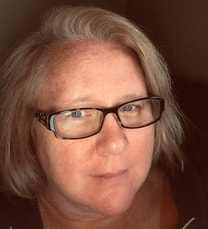BLOG POST BY PTAC MEMBER CHRISTINE TAPU “Miss, thank you for inviting me to present to this class. This is the first time that I ever felt I could be myself at school,” N.T. said to me. I was stunned. N.T. was an 11th grade student whose home language was Swahili and Kinyarwanda. She was in my class in her freshman year and was an athlete with good grades, excellent proficiency in English and was well-liked by peers and adults. As an 11th grader, she appeared confident and well-adjusted to our diverse urban school. In short, it was hard to imagine that N.T. felt out of place. Her perception was her reality. N.T. had just spoken in our presentation about her experience being relocated to a refugee camp. I showed pictures of the camps, and she described the photos. For me, the presentation was a requirement of the Fulbright short-term project I had just completed. Two months earlier, I was in Tanzania with a group of educators studying Tanzania’s post-colonial development. For N.T., the presentation meant so much more. I was no stranger to international experiences. Before Fulbright in Tanzania, I was a Peace Corps volunteer, a Fulbright year-long exchange teacher, and a host to international teachers in my school. These experiences expanded my global awareness, but Tanzania taught me impactful social and cross-cultural skills. Tanzania forced me to critically examine my practices as a teacher from the lens of the students I teach. I also looked at my leadership from the lens of my international colleagues. The reflections compelled me to reach out to one person in particular – a former colleague who grew up in East Africa, like so many of the students in my school. “Pole sana,” I said on the phone. I repeated in English, “I am sorry.” My former colleague said, “Asante sana. Now you see what it was like for me to be an African working in American schools.” The jarring fact was that I knew my eyes had been merely opened to her perspective. I knew I had so much more to learn. This knowledge might have been enough to retain this teacher at my school. In a school with a diverse population, we need NOT to treat others like WE want to be treated but to treat others like THEY want to be treated. For example, Tanzania taught me what it means to be a part of a culture that focuses on “we” and not just “I”. My international education taught the value of being seen and the joy of seeing others for who they are. In all schools (even more in schools with diverse populations), teachers need to create opportunities for students to be valued for who they are. It’s nice to seek out holidays and food but the work does not stop there. In short, I urge you to help students feel seen and heard in your schools and classrooms. Help amplify the voices of the groups that do not normally have one. This life-reaffirming position will allow students to not just survive but thrive.
0 Comments
|
AuthorPennsylvania Teachers Advisory Committee Archives
March 2022
Categories |

 RSS Feed
RSS Feed